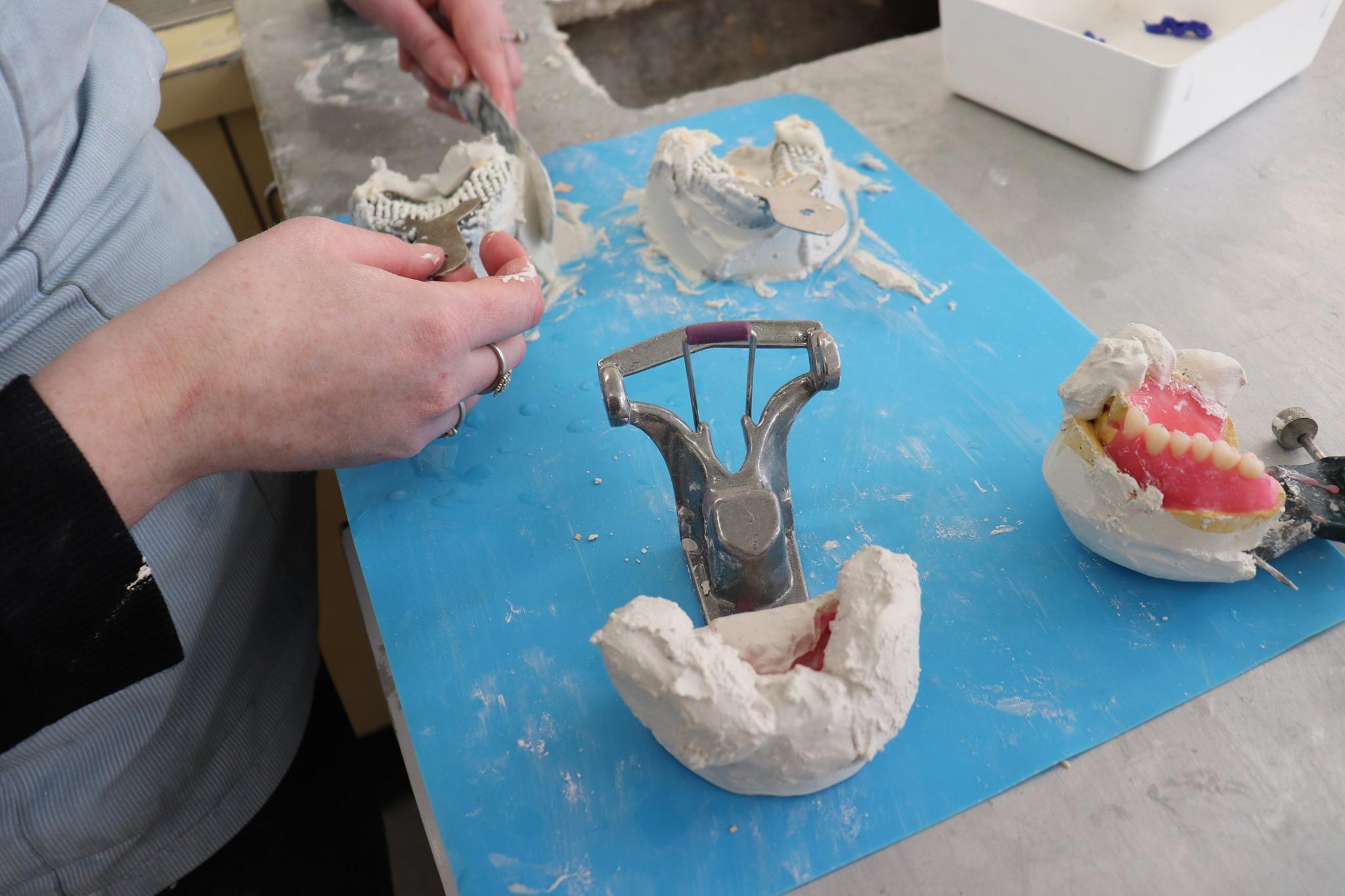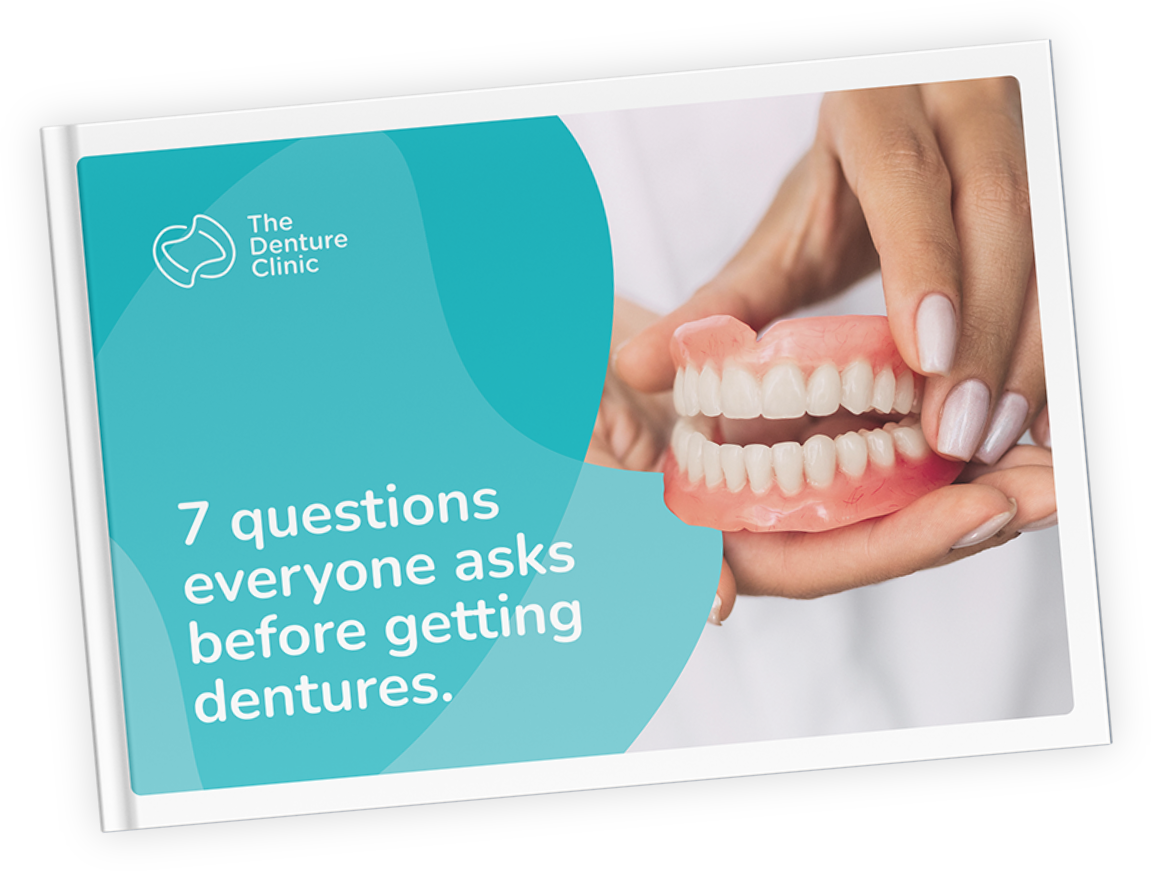Wearing dentures can help restore function and appearance, but sometimes unusual issues, such as a metallic taste, may occur. This strange taste can be bothersome and leave you wondering about the cause. In this blog, we explain why some denture wearers experience a metallic taste, steps that may help reduce it, and when professional advice might be necessary. Understanding these factors can offer clarity and help you address the issue effectively.

What Causes a Metallic Taste with Dentures?
Several factors can lead to a metallic taste while wearing dentures. One of the most common causes is the material composition of your dentures, particularly if they contain metal clasps or dental frameworks. In some cases, these metals can react with the natural chemistry of your mouth, leading to a noticeable metallic flavour.
Another factor could be medications. Some medications, such as antibiotics for high blood pressure, can cause a metallic taste, especially in individuals who wear dentures. Additionally, changes in oral health or conditions like dry mouth can alter taste perception, contributing to this issue.
How to Alleviate a Metallic Taste from Dentures
If you’re noticing a metallic taste while wearing dentures, there are a few things you can try to manage it:
- Consider non-metal dentures: Talk to your dentist about switching to dentures made from non-metal materials.
- Stay hydrated: A dry mouth can make metallic tastes worse. Drinking plenty of water throughout the day helps keep your mouth moist.
- Rinse with salt water: A mild salt water rinse can cleanse your mouth and neutralise unpleasant tastes.
- Review your medications: If the metallic taste is related to a medication you’re taking, discuss possible alternatives with your doctor.
These steps can help improve the issue, but monitor your symptoms to determine if further action is needed.
Maintenance Tips to Prevent Denture Taste Problems
Proper denture care is essential to avoid any lingering metallic taste. Here are some helpful tips:
- Clean your dentures daily: Use a soft toothbrush and a non-abrasive denture cleaner to remove plaque, food particles, and bacteria that can cause unpleasant tastes.
- Avoid strong-flavoured foods: Spicy, acidic, or overly sweet foods can sometimes intensify a metallic taste, so cutting back on these may help.
- Regular dental check-ups: Routine visits to your dentist can help ensure your dentures remain in good condition, reducing the risk of material wear that might contribute to a metallic taste.
By following these tips, you can keep your dentures in top shape and minimise the chances of experiencing unwanted tastes.
When Should You Seek Professional Help?
While home remedies can be helpful, there are times when professional care is necessary. You should consider reaching out to your dentist if:
- The metallic taste continues despite your efforts to manage it.
- You experience pain or discomfort alongside the metallic taste, which may indicate a severe issue with your dentures or overall oral health.
- You notice signs of an allergic reaction, such as swelling, redness, or irritation, which could suggest sensitivity to the materials in your dentures.
In these situations, your dentist can evaluate the issue and provide personalised solutions to improve your comfort.
Schedule a Consultation for Denture Care
A metallic taste in your mouth while wearing dentures can be uncomfortable, but identifying the cause and taking practical steps can help manage the issue. At The Denture Clinic, we focus on providing denture solutions that address your specific needs. If you’re dealing with a metallic taste or any other issues with your dentures, our team can assess the cause and recommend appropriate options, such as non-metal alternatives or adjustments to your current dentures. To discuss your denture concerns, including metallic tastes, contact us today.


